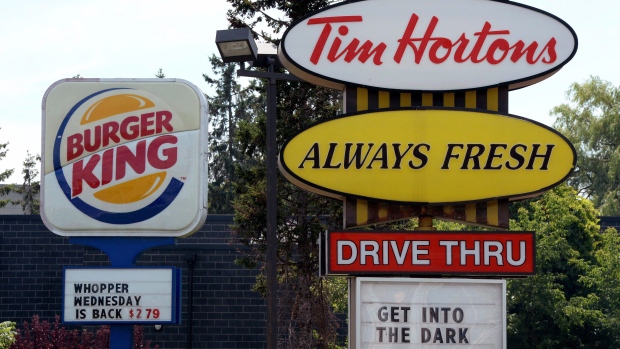Feb 13, 2017
Restaurant Brands International profit beats as costs fall
, Reuters

Restaurant Brands International Inc (QSR.TO), the owner of Burger King and Tim Hortons, reported a higher-than-expected quarterly profit as comparable sales at its burger chain topped estimates and costs fell during the fourth quarter.
Total comparable sales at Burger King rose 2.8 per cent in the three-month period ending Dec. 31, beating the average estimate of a 2.5 per cent rise, according to research firm Consensus Metrix.
Total costs at Restaurant Brands fell about 16 per cent to US$619.8 million, while comparable sales at Tim Hortons rose 0.2 per cent in the quarter.
“I think investors will be sort of surprised and dismayed by the shift around,” Dennis Mitchell, senior vice president and senior portfolio manager of Sprott Asset Management, told BNN Monday when discussing Restaurant Brand International’s same-store sales. “If the strength in Burger King can be sustained and maintained, that would be a longer-term positive. But if there are any concerns of the health of the Tim Hortons franchise going forward, that would be a real concern for investors.”
Mitchell also noted that he doesn’t invest in fast-food restaurant companies because their business model goes “against the trend of eating healthier.”
“I’m not a big fan of quick-service restaurants,” he said. “I just don’t see the enduring business model.”
Restaurant Brands’ net profit attributable to shareholders more than doubled to US$118.4 million, or 50 cents per share, from a year ago, when it took a US$37-million charge for the merger of Burger King and Tim Hortons.
On an adjusted basis, Restaurant Brands earned 44 cents per share, beating the average analysts' estimate of 42 cents per share, according to Thomson Reuters I/B/E/S.
The Oakville, Ontario-based company's total revenue rose about five per cent to $1.11 billion and was nearly in line with estimates.
- With files from BNN




